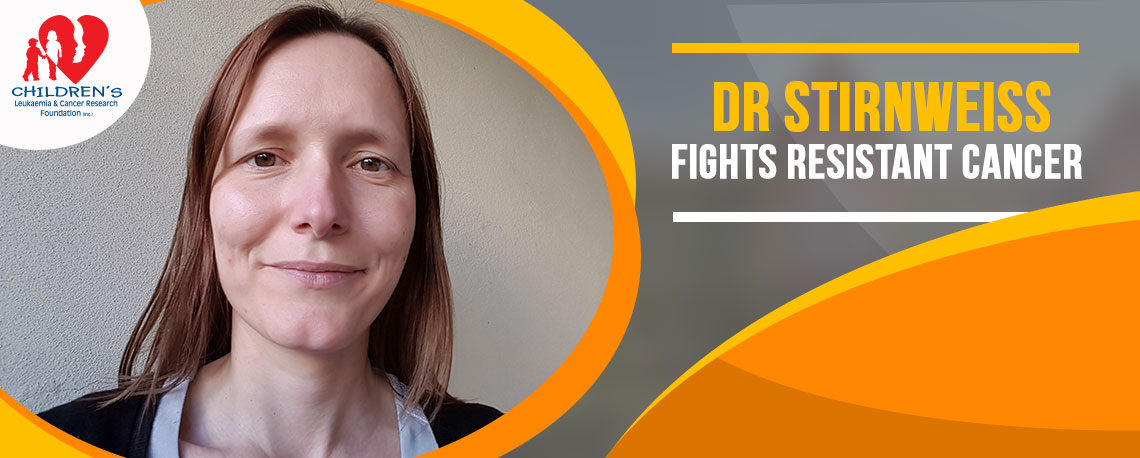
Dr Stirnweiss Makes Inroads into Fighting Resistant Cancer
Last year Dr Anja Stirnweiss, Senior Researcher at the Telethon Kids Institute, received a Children’s Leukaemia & Cancer Research Foundation (Inc.) (CLCRF) Project Grant that enabled her to evaluate pathways associated with drug resistance in NUT midline carcinoma, a type of aggressive cancer.
Further to this experimental work being conducted and analysed, Dr Stirnweiss submitted a Small Grant Application to CLCRF for support with the costs to finalise and publish the findings of this project.
In NUT midline carcinoma, the patient’s genetic material is incorrectly repaired, which leads to the joining of two genes (called BRD4 and NUT) and creates a new hybrid gene that causes the cancer. A new class of cancer drugs called iBETs, designed to block the function of BRD4, are currently assessed worldwide in 21 clinical trials for patients with leukaemia, brain tumours, aggressive breast cancers and NUT midline carcinoma.
Dr Stirnweiss’ findings indicate that the therapeutic benefits of these drugs are limited through the acquisition of resistance. This has important clinical ramifications.
For the study, she and her team used a unique collection of cell lines, obtained from NUT midline carcinoma patients, to identify drug-induced changes in gene expression. Dr Stirnweiss then performed a correlation analysis to identify changes that are unique to iBET-resistant cells.
Network analysis, which assesses how those genes are functionally connected to each other, highlighted the oncogene FOS to be a central player of the gene network that is associated with drug resistance. Removal of this gene from the resistant cells showed that FOS is not a driver of resistance, but an ideal marker to predict whether the cancer cells will respond to iBET drug treatment. Ultimately, assessment of FOS could be used in the clinic to predict whether patients will benefit from iBET treatment.
It was agreed that the findings from this substantial body of work is highly relevant to patients with NUT midline carcinoma and other cancers with BRD4 involvement. Therefore, the findings should be made available to other researchers and clinicians. To publish these findings in the highly prestigious journal, Molecular Cancer Research, minor work needs to be done. When completed, Ms Mahalia McEvoy, an outstanding young researcher who conducted experiments essential to the proposed manuscript as part of her Honours studies, will assist Dr Stirnweiss with writing the manuscript.
The Foundation approved a budget of $14,276 to cover these publication costs. Dr Stirnweiss passionately believes that this research presents a unique opportunity to make a difference for patients suffering from NUT midline carcinoma.
Congratulations and thank you to Dr Stirnweiss for her outstanding scientific contribution to cancer research.
